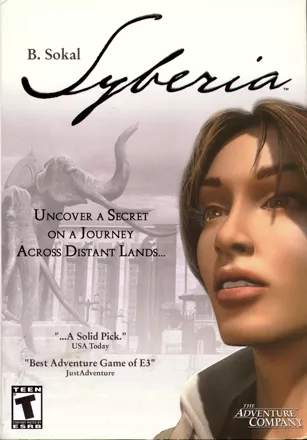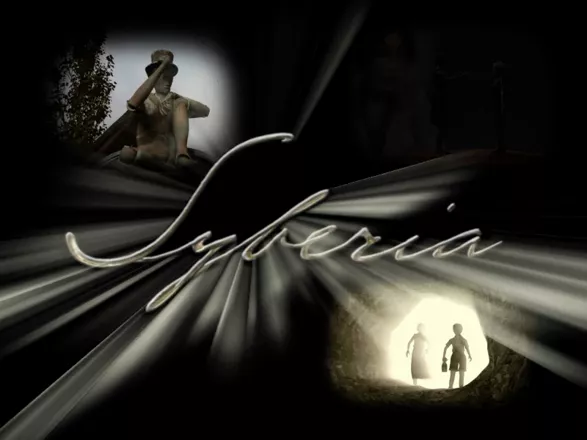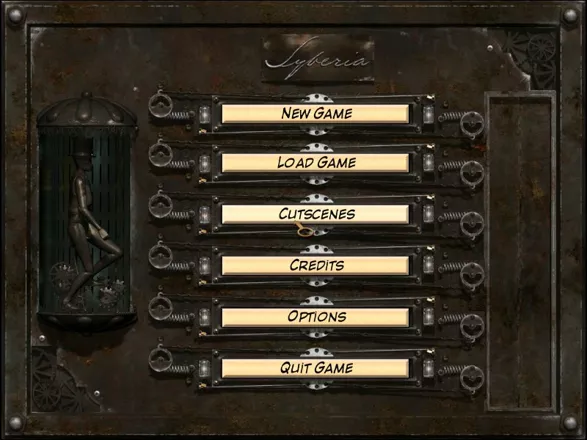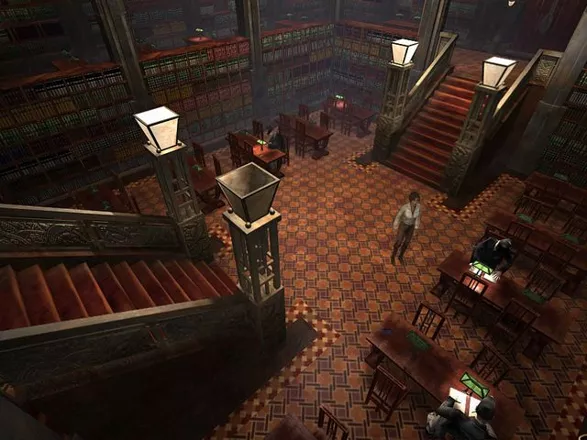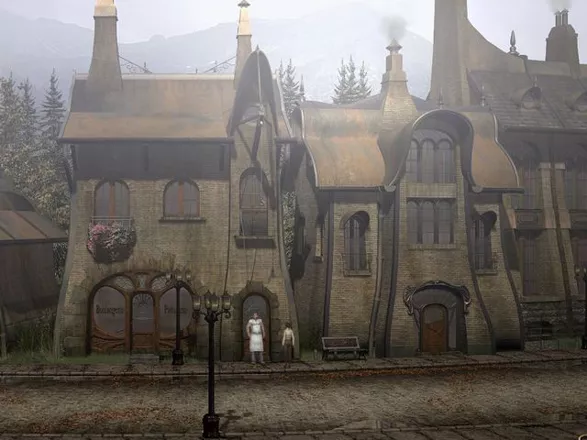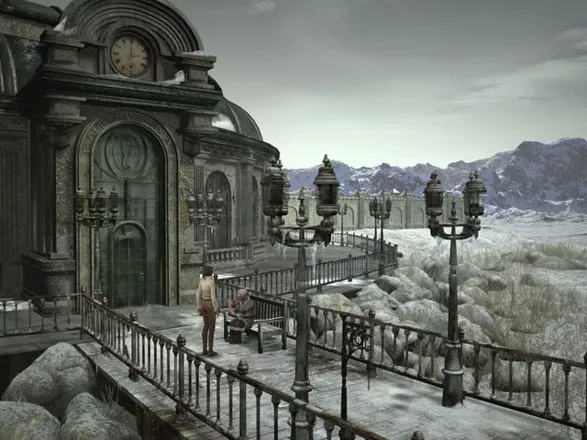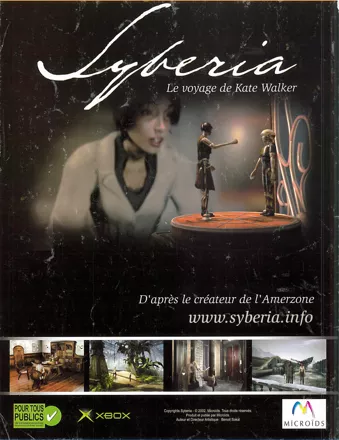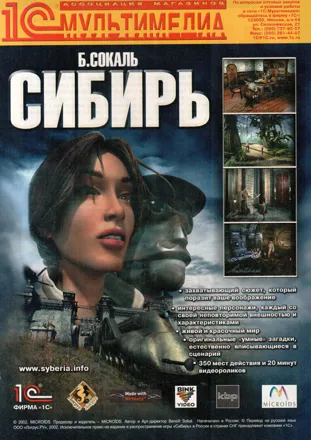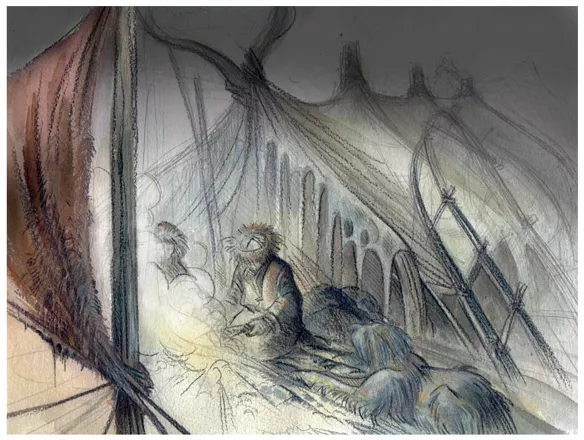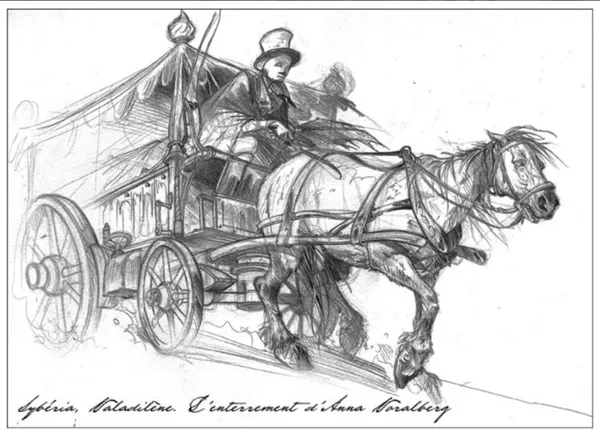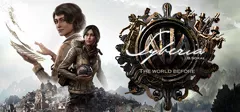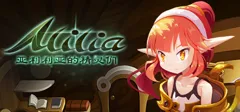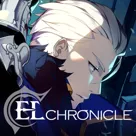Syberia
Description official descriptions
Kate Walker is a lawyer who has been entrusted by the Universal Toy Company to negotiate the takeover of an old luxury toy and automaton factory. Over the centuries, the factory has been developing clockwork devices, specializing in perpetual mechanical movement. The factory's ambitions, however, are ill-suited to the contemporary economic climate, and the elderly Anna Voralberg, at the helm of the Valadilene factory for more than half a century, has decided to sell up.
It turns out that the takeover might not be as straightforward as expected. The day that Kate Walker arrives, Anna Voralberg is being buried. What is more is that she has left an heir – her brother Hans. But Hans had left the valley at the end of the thirties and never returned, and was actually believed to be dead. However, a letter written by Anna in the days leading up to her death reveals that Hans is well and truly alive and living somewhere in Siberia. Valadilene's elderly notary entrusted to take care of Anna's affairs suggests that Kate find Hans Voralberg as he is now the only person in a position to ratify the sale of the family business.
Syberia is a traditional puzzle-solving adventure. The player navigates a 3D model of the protagonist over pre-rendered backgrounds with fixed camera angles. Puzzles are mostly inventory-based, though some involve manipulating the environment (such as mechanical devices). The interface features a single cursor; only highlighted objects can be interacted with, and there are no verb choice commands.
Spellings
- Сибирь - Russian spelling
- シベリア 日本語版 - Nintendo product page Japanese spelling
- 西伯利亞 - Traditional Chinese spelling
- 赛伯利亚 - Simplified Chinese spelling
Groups +
Screenshots
Promos
Videos
Add Trailer or Gameplay Video +1 point
See any errors or missing info for this game?
You can submit a correction, contribute trivia, add to a game group, add a related site or alternate title.
Credits (Windows version)
114 People (101 developers, 13 thanks) · View all
| Author | |
| Art Director | |
| Production Manager | |
| Technical Manager | |
| Project Manager | |
| Lead 3D Modeler & Texturing | |
| Lead 3D Animator | |
| Lead Programmer | |
| Lead Integrator | |
| France-Canada Coordinator | |
| Game Designers | |
| Writer/Editor | |
| Set Design | |
| 3D Modeling & Texture Art - Environment | |
| 3D Modeling & Texture Art - Characters | |
| Animation - Cutscenes | |
| Animation - In-game | |
| [ full credits ] | |
Reviews
Critics
Average score: 76% (based on 67 ratings)
Players
Average score: 3.9 out of 5 (based on 194 ratings with 14 reviews)
A very, very long movie. Or, an extremely short game.
The Good
The graphics and sound effects in this game were amazing. They combined to create imaginary, surreal, bleak environments that you could actually believe in. I found myself thinking, "Ya know, if there actually is some long-forgotten city of Barrockstadt or Komkolzgrad on an abandoned rail line, it probably would look a lot like this." Bleak. Grey. Run-down. Populated with small handfulls of slightly-eccentric inhabitants who take their unusual environments and the presence of advanced clockwork automatons for granted. As you progress towards your destination, the environment becomes more bleak and surreal.
My favorite example of this would be the Barrockstadt University. It's a massive, ancient, sprawling stone campus, yet there is a grand total of: three students, one professor, one groundskeeper/stationmaster, and three (three!) rectors.
None of them find anything weird about that, of course. Whether this lack of population is intended, or an oversight by the designers, I think it works to the game's advantage.
I also liked the plot-delivery method of Kate's cellphone. At certain points your character would receive calls from people in her life (her mom, or her boyfriend, or a coworker, or her boss.... and that's it. Not a very social girl, our Kate), and while these calls were often annoying, they do help one to understand the main character, and where she's comin' from.
As well as where she's going.
Unfortunately.... once you set aside the game-world itself and focus on the game's mechanics, there aren't many good parts left. The story was a bit far-fetched, sure, but still enjoyable. It's unfortunate that the presentation of the story was struggling uphill against the game itself.
The Bad
Well, looking back on it, quite a lot.
First, the voice-acting. Spoken lines rarely matched up with their subtitles. That's not too bad in itself, but on some occasions, entire sentences were dropped from the spoken dialog. There were a few pieces of information I could only find out by glancing at the non-spoken text before it vanished. Luckily, none of this information was actually critical. In addition, a lot of the voice actors sounded as if they were simply reading their lines out of context -- there wasn't much emotional weight added to lines that should have been spoken angrily, or happily, or what have you. It tended to break the fiction a bit.
Granted, in some of the cellphone conversations, Kate sounded... emotionally-dead. I'm still not certain if that's due to the overall bad quality of the voice acting, or if it was intentional during those times.
And speaking of dialog, you must speak to characters using keywords. Unfortunately, your selection of keywords is always extremely limited (to subjects like "Kate", or "Train", or "Hans" and such), and more times than I can remember, Kate would stupidly ask questions that I know the answer to, but she doesn't until she solves some lengthy puzzle, or talks to some obscure character.
Frustrating, to say the least.
The other big problem I had with this game, were the puzzles. They made logical sense, for the most part, but nearly all of them felt like they were cobbled together. And a very large number of puzzles required you to run from Point A to Point B, which is all the way across the city. Then run back to point A. Then back again to Point B. And back, and forth, and back, and forth..... This is how you don't design puzzles, guys.
Also, at the risk of giving spoilers, the ending disappointed me. A couple of facets of it were enjoyable, but there was all this buildup for a question over the course of the entire game, and you never find out the answer.
The Bottom Line
I dunno, to be honest. This game would have made a far better movie or cartoon than an actual game. Some people like "interactive movies" with puzzles grafted on; I certainly used to. It only took me a couple of days to complete; I think if this were a much longer game, I could recommend it.
Windows · by Dave Schenet (134) · 2003
The Good
OK, you think to yourself after reading the headline, “oh another one of those big queens who cry from anything”. Well, nothing could be further from the truth. I AM gay, but I am ex-special unit soldier who fought both in Lebanon and in Gaza. If I cry over a computer game, you can guess that this game is a real gem.
I think in order for you to feel Syberia, you have to play it twice. Then, the people in the game will really matter to you. The main characters in the game make you feel sorry or happy for them long after you finished the game.
Take for example Helena Romanski, Does she not represent the fear we all share of getting old and loosing our social status? Are we all not afraid to be alone toward the end of our life? When you hear her talk, sing you can only feel so much sorry for her.
And what did you think about Anna? How can one not sorry and sad for her loss? Two days before she was to meet her brother whom she has not seen for over 50 years, her heart gave up, probably from the sorrow of having to sell the factory.
The scene where Kate tells Hans about Anna is simply most moving.
In a way, Kate’s personality is somewhat of a disappointment. She is more the glue that connects the plot and brings you closer to all the other characters. Normally the main character is the one you are supposed to identify the most, not in this case. But, who knows? Maybe this was the intention.
From a technical point of view: The game still looks great, and the music is simply phenomenal. I bow before the composers.
Voice acting was also superb.
The game interface is also very easy to use.
The Bad
You need to walk a lot to solve some of the puzzles. This makes the game somewhat tedious.
The Bottom Line
If you want a moving long lasting game experience, play Syberia!
Windows · by The Gay Elf (12) · 2007
The Good
Syberia was released to nearly-standing ovation from many fans of adventure games. Some went as far as to proclaim it the promised savior of the agonizing genre. So, what are the reasons for the overwhelming praise this game received from critics and players all around the globe?
Syberia was developed by a company that, by that time, had had some experience with adventure games; their previous works were Amerzone and Road to India. Syberia got rid of their "disturbing factors" (the overused Myst-like perspective and atmosphere of the former, the demo-like size and non-existent challenge of the latter) and expanded itself to become a more mainstream, full-fledged adventure game of the ever beloved third-person, point-and-click variety.
Though it does borrow a few elements from Amerzone, it cannot be denied that Syberia has a strong sense of style. That's its most appealing aspect, and that's how it managed to capture the hearts of so many players. The creators of the game let us enter a unique world. Usually, science fiction novels, movies or games are concern with either space travel or all kinds of futuristic machinery. The word "science fiction" becomes immediately associated with highly advanced electronics, spaceships, robots, and overly intelligent maniacal computer systems. But a "retro" science fiction of the beginning of the 20th century, science fiction in little quiet European towns of yesterday - that's quite unusual, and that's what Syberia is about. A strangely interesting world of automatons - mechanical robots - is definitely stylish. This is something no one has probably thought of before, and for that idea the game deserves credit.
A few of the locations are rather imaginative, with some interesting architecture and the elusive mechanical toys contributing to the peculiar charm. There are some nice gameplay elements here and there. You may rejoice at the occasional good, fulfilling puzzle and a bit of lively dialogue happening when you least expect it. I liked the idea of the protagonist communicating with her friends and family over the phone - particularly because that wasn't connected to any in-game activity and was there simply to flesh out the rather indifferently-acting main character a bit more.
Syberia has good production values. The pre-rendered background graphics are detailed and aesthetically very pleasing - though, in my opinion, the art is somewhat cold and cannot quite compare to the majestic beauty of the similarly-looking The Longest Journey. Also, everything is done in grayish tint - which is probably intentional, conveying the occasionally atmospheric, bleak solitude of the game's world.
The Bad
Syberia may be the next hippest thing in the world of 2D background art or even a clever metaphorical tale of human life for all I care, but it is not a good adventure game.
Most adventures live and die with their puzzles, and that's where Syberia fails utterly. There is no spark or inspiration in the puzzles at all. After you finish the game, only the cocktail preparation and perhaps one or two other tasks would linger in your memory for a while. Everything else is forgettable at best, and more often irritating. The mechanical puzzles are uniformly dull; inventory-based activities come across as pathetic shadows of the merry experimentation we knew from the comedy adventures of yore. Worse, however, is the fact that most objectives force you to run back and forth through lifeless landscapes from a solitary character to an obscure item well-hidden in the backgrounds, to an extent rarely seen in the classic representatives of the genre due to the game's abysmal linearity and lack of interaction. Even more so than other contemporary adventures, Syberia discourages experimentation and any kind of creative thinking; it contains almost no optional actions at all, grabbing your hand and sending you on an on-rails museum tour, occasionally sticking your nose into a puzzle that has to be solved here and now.
The puzzles are also poorly balanced. You encounter them virtually in every location you visit, and many of them are elementary easy to solve right away. As a result, you are able to actually solve many puzzles without even knowing that. Since you can't get stuck or die in the game and there are usually only very few things the game allows you to do, the puzzles often refuse to follow the cardinal rule of logic (first find out why you need to do something, then do it). Because of that, most puzzles feel like amateurish imitations of classic gameplay devices pasted into the game without a good reason.
The story of Syberia starts strong, but unfolds itself much too slowly. There is absolutely no sense of urgency in the development of the plot. It is as if the designers decided that the stylish setting alone would be enough to guarantee good storytelling. The whole game is spent overcoming ridiculously irrelevant obstacles while searching for a missing person. You could sum up this story in a couple of sentences. Nothing really significant happens in the game. True, the ending is not bad compared to the rest of the game, but to suffer hours of unexciting gameplay without any real story advancement just in order to see this ending is a bit exaggerated.
Syberia is also a very dry game. It sorely lacks emotions. Its attempts at humor are infantile at best. Its characters feel artificial and uninspired. You know there is a problem with the character cast of a game if its most interesting character is a mechanical robot, and even he comes across as forced with his uneasy goofiness. And all those dry characters will force you to engage in equally dry conversations with them. There's a lot of dialogue in the game, and almost all of it is dull. Almost the only exception I can think of is that guy hitting on Kate in different languages.
The Bottom Line
Syberia was met with joy by critics and players alike. People were longing for an adventure game, and this one was undoubtedly better than most of its genre cousins released at that time. To me personally, the success of this game only highlighted the gravity of the death sentence imposed on adventures. It's the story of The Longest Journey once again - except this time involving a lesser game.
Windows · by Unicorn Lynx (181780) · 2014
Discussion
| Subject | By | Date |
|---|---|---|
| Who Was the Model for Kate Walker? | null-geodesic (106) | Dec 1, 2007 |
Trivia
Language
The words written on the control panel of the airship in Kolmkozgrad are authentic Russian. However, the name of the hotel in Aralbad is written incorrectly.
Marketing
Some German games magazine editors received a postcard from New York with a handwritten text from someone called Kate who wrote in German, that she had an Austrian uncle, some problems and so on. There was no clue that this was a PR-event for the game Syberia, even the fake-handwriting was done with some smeared ink.
PlayStation 2 version
Contrary to the Xbox release, the PS2 version did not appear in North America, as SCEA did not approve the game there.
References
- The rat from Road to India makes a cameo appearance in Syberia. It appears in the basement in Kolmkozgrad, makes exactly the same movements it did in Road to India, and disappears.
- Syberia contains some references to another game by Microids, Amerzone . In Barockstadt you can read and hear a lot about different species of Amerzone's flora and fauna.
Awards
- Computer Games Magazine
- March 2003 (Issue #148) - #10 overall in the "10 Best Games of 2002" list
- Computer Gaming World
- April 2003 (Issue #225) – Adventure Game of the Year
- Gamespot
- 2002 - PC Adventure Game of the Year
- 2002 - Best Artistic Graphics
- Gamespy
- 2002 - PC Adventure Game of the Year
- IGN
- 2002 - Best Adventure Game (Readers' Choice)
Information also contributed by Felix Knoke, Jeanne, PCGamer77 and Sciere
Analytics
Upgrade to MobyPro to view research rankings!
Related Sites +
-
Another good walkthrough
MaGtRo's Walkthrough for Syberia -
Microids' Official Walkthrough (in English)
Original walkthrough published by the developer -
Microids' Official Walkthrough (in French)
Original walkthrough by Microids in French -
Solution in Hint Form
If you'd rather get subtle hints to help you along, this file will get you to the solutions at your own pace. -
Syberia
Official Site - Adventure Company -
Walkthrough
If you get stuck in game, use this site to help you out of trouble and continue playing. -
Walkthrough by Witchen
Witchen's Syberia solutions -
Zarf's Mini-Review
A mini-review of Syberia by Andrew Plotkin (March, 2004).
Identifiers +
Contribute
Are you familiar with this game? Help document and preserve this entry in video game history! If your contribution is approved, you will earn points and be credited as a contributor.
Contributors to this Entry
Game added by Isdaron.
PlayStation 3, Nintendo DS added by Charly2.0. Linux added by Plok. Android added by Ingsoc. Nintendo Switch added by Kam1Kaz3NL77. Xbox 360 added by Kennyannydenny. iPhone, iPad, Blacknut, PlayStation 2 added by Sciere. Xbox added by LeChimp. Macintosh, Windows Mobile added by Kabushi.
Additional contributors: frin, Unicorn Lynx, Jeanne, tarmo888, Sciere, Zeppin, Paulus18950, Patrick Bregger, Rik Hideto.
Game added June 28, 2002. Last modified April 2, 2024.
